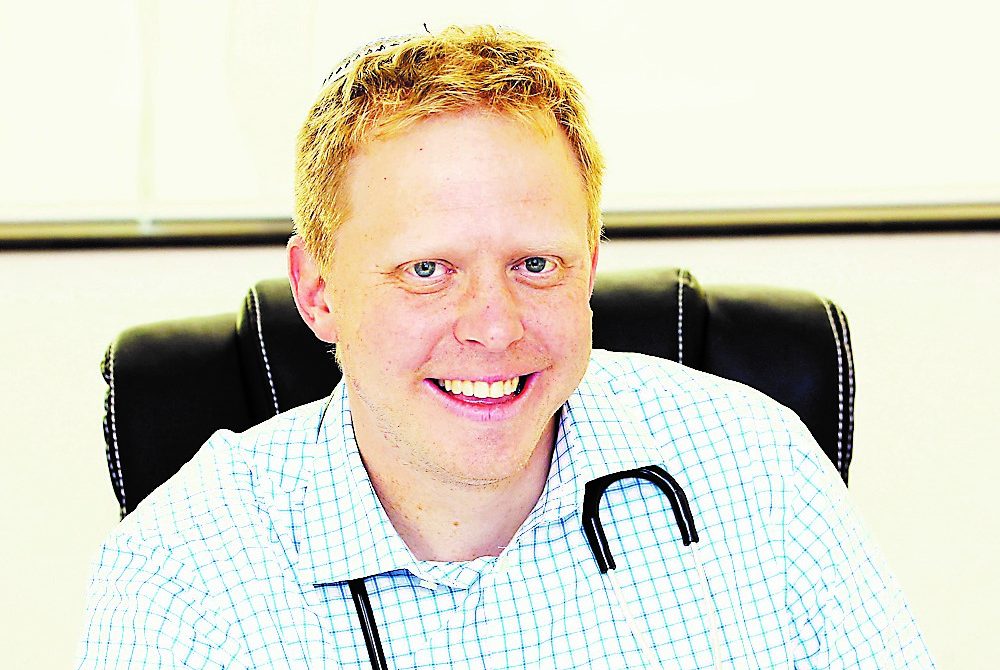click to dowload our latest edition
CLICK HERE TO SUBSCRIBE TO OUR NEWSLETTER


Published
4 years agoon
By
adminDR DANIEL ISRAEL
A common experience for many a parent these days, this morning hasn’t run smoothly in our home. My four wonderful real children are blessed to have online school activities for Lag Ba’Omer this morning, which has crashed my internet and delayed my exercise routine into the last half hour before curfew. Yet another stimulus for turning patient commitments into their common current COVID-19 frenzy.
For most South Africans, navigating one’s way through this crisis has become a skilled game of walking a tightrope, with family and personal demands on the one side and the increased difficulty of generating a consistent income on the other. Doctors have additional dimensions to this chasm, dimensions that are often overwhelmingly challenging but are also often inspiring.
When the SA Jewish Report asked me to share some of these dimensions, I took up the challenge in the hope that insight into doctors’ lives would deepen the compassion and understanding in our community that’s already so evident.
Mid-March 2020 brought a wave of anxiety to general practitioners in our community. As travellers infected with COVID-19 returned to South Africa from abroad, our first panic was to protect our staff, patients, and ourselves from the walk-ins who came to see whether they had the virus.
I scrambled for personal protective equipment to no avail. Eventually, I pleaded with one of the dentists to sell me a box of simple surgical masks. That box was the only available barrier between our busy medical team and the virus. We washed reused masks daily, but little did doctors know then that it was more important for patients to be wearing the masks than medical staff.
With the calming of the storm during lockdown and the reduced incidence of cases in our practice, we have faced new challenges. I’m privileged to be a member of a WhatsApp group of about 120 GPs who share a plethora of resources, ideas, personal support, and even unbeatable humour during this crisis. This Gauteng GP collaboration has become our GP army barracks and base camp. It’s the single most valuable tool that keeps us all connected, in-sync, and practicing the same evidence-based medicine.
“How many people are you seeing today? I’m 70% down!” “How on earth do I remove a splinter in a telephone consult?” These are common themes I encounter on the group daily. The “stay home, save lives” campaign has wonderfully delayed the progression of this pandemic in our country. But it has also created a reluctance in patients to engage in-person with their healthcare professionals, often irrationally so.
Every day, I receive calls from patients about uncontrolled glucose readings or home-monitored high blood pressure. The government has allowed repeats on scripts to prevent patients unnecessarily coming into hospitals, but I believe the possible consequential risk of allowing chronic conditions to derail is far more worrying.
The transition of stage 5 to stage 4 has thankfully seen a return of the normal amount of patients to our rooms. Focusing in, I’m confident that our surgery is safe, with constant disinfection, mandatory masks for all, screening and separation of all remotely suspicious cases, and no-touch policies. I know that all my colleagues are following the same protocol. We are all encouraged by the daily return of our patients to our practices, but the challenge remains to encourage our patients to remain engaged. Consider that the mortality rate of diabetes may be 4% compared to the 1.5% of COVID-19. Responsible medical care is about mitigating greater real risks too.
It would be unjustified to describe COVID-19 as just a crisis. It has also been a time of great opportunity for me as a GP. I have committed myself to carrying my staff through this storm, in spite of the financial pressure involved. It’s a wonderful blessing that doctors are able to continue employing staff throughout the lockdown because we are essential. This experience has strengthened my appreciation of the value of commitment to those who are committed.
COVID-19 has sparked an unprecedented camaraderie and support between doctors in South Africa. GPs work together as a team, no longer competitors. Extraordinarily, specialists are willing to lend a hand. The thirst for evidence-based knowledge and academic growth is higher than I have ever seen, even within the non-university environment of the private sector. The medical fraternity’s commitment to kindness and the well-being of humankind spreads to – or possibly even stems from – the broader South African public, the likes of which we haven’t seen since 1994.
As we turn the page of autumn onto our usual busy winter season, I know that this COVID-19 experience is bound to escalate. I’m deeply encouraged, though, that this lockdown has allowed GPs to prepare our practices to care for our patients safely without inferring risk on them.
By applying the principles of social distancing and sanitisation as well as safe engagement at work, we will embrace this time and ensure that our patients and practices remain healthy. The cherry on top will be if I’m able to keep fulfilling my own children’s needs and get my jogging done in the mornings without technology crashes before curfew.
